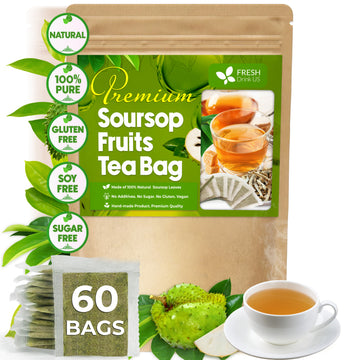1. Is Drinking More Than 5 Cups of Green Tea a Day Good for You?
Green tea is well-known for its antioxidant properties, its ability to promote alertness, and its role in supporting metabolism. However, when you drink more than 5 cups of green tea per day, your body may receive an excessive amount of caffeine and tannins. When intake goes beyond what the body can process, the health benefits of green tea can quickly reverse and turn into a range of unwanted side effects. Understanding your limits and consuming green tea properly is essential to avoid overwhelming your system.
2. Common Side Effects of Drinking Too Much Green Tea
2.1. Insomnia, Heart Palpitations, and Nervousness
Although green tea contains less caffeine than coffee, drinking more than 5 cups a day can lead to caffeine buildup.
Common symptoms include:
-
Difficulty sleeping or poor sleep quality
-
Nervousness and restlessness
-
Rapid heartbeat
-
Mild anxiety or trouble concentrating
Individuals who are sensitive to caffeine or who consume caffeine from other sources (coffee, soda, energy drinks) may experience stronger effects.
2.2. Stomach Irritation and Digestive Issues
The tannins in green tea can increase stomach acid and cause discomfort when consumed in excess or on an empty stomach.
Possible effects:
-
Upper abdominal discomfort
-
Nausea
-
Bloating or indigestion
-
Acid reflux
People with gastritis, stomach ulcers, or sensitive digestion should be especially cautious.
2.3. Reduced Iron Absorption and Increased Risk of Anemia
Green tea can inhibit iron absorption from food, especially plant-based iron.
Drinking too much green tea over time can lead to:
-
Persistent fatigue
-
Dizziness
-
Pale skin
-
Risk of iron-deficiency anemia
Groups most at risk include pregnant women, children, vegetarians, and individuals with low ferritin levels.
2.4. Increased Liver Stress When Consumed Excessively
Catechins in green tea are beneficial in moderate amounts, but excessive intake forces the liver to work harder to metabolize them.
Potential issues:
-
Elevated liver enzymes
-
Mild liver discomfort
-
Rare cases of impaired liver function
The risk increases significantly if you also take supplements containing concentrated green tea extract.
2.5. Blood Pressure and Heart Rate Changes
Individuals sensitive to caffeine may experience:
-
Temporary increases in blood pressure
-
Rapid heartbeat
-
Heart palpitations
For people with cardiovascular conditions, consuming more than 5 cups of green tea per day can pose added risk.
3. How Much Green Tea Per Day Is Considered Safe?
To maximize benefits while minimizing side effects, health experts recommend:
3.1. Ideal Daily Intake
-
2–3 cups per day is optimal.
-
Avoid exceeding 5 cups a day.
3.2. Times You Should Avoid Drinking Green Tea
-
On an empty stomach
-
Before bedtime
-
Immediately after iron-rich meals (reduces iron absorption)
-
When consuming multiple caffeine sources

4. How to Drink Green Tea Safely and Effectively
- Drink 30–60 Minutes After Meals
This helps prevent stomach irritation and promotes better nutrient absorption.
- Avoid Drinking Tea That Is Too Hot
Green tea above 65°C (149°F) may irritate the stomach lining and throat.
- Reduce Intake if You Notice Any Discomfort
Symptoms like palpitations, nausea, or insomnia are signs to lower your consumption.
- Choose High-Quality, Clean Tea
High-grade, pesticide-free tea reduces the risk of unwanted reactions.
5. Conclusion: Drinking More Than 5 Cups of Green Tea a Day Can Have Drawbacks
Green tea provides multiple health benefits, including antioxidant support, improved alertness, and enhanced metabolism. However, when you drink more than 5 cups per day, you may experience insomnia, digestive discomfort, reduced iron absorption, liver stress, and changes in heart rate. To enjoy the full advantages of green tea, consume it moderately, listen to your body, and maintain a healthy drinking routine.














